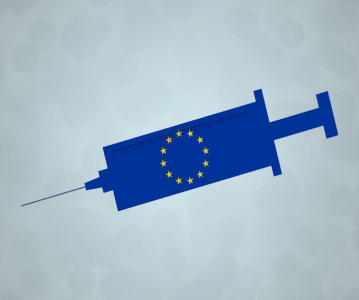Repatha receives EC approval for new 420 mg single-dose delivery option

Approval of the automated mini-doser marks first hands-free administration option for a PCSK9 inhibitor in Europe.
Amgen has announced that the European Commission (EC) has adopted a decision to change the Repatha (evolocumab) marketing authorization, approving a new single-dose delivery option. The new automated mini-doser (AMD) with a prefilled cartridge is a hands-free device that provides 420 mg of Repatha in a single injection per administration. Repatha is the first proprotein convertase subtilisin/kexin type 9 (PCSK9) inhibitor in Europe with the option of a single monthly injection. Repatha is a human monoclonal antibody that blocks a protein called PCSK9, which inhibits the body's natural system for eliminating 'bad' cholesterol (low-density lipoprotein cholesterol or LDL-C) from the blood.
"Amgen is committed to advancing care and improving the lives of patients with cardiovascular disease," said Sean E. Harper, M.D., executive vice president of Research and Development at Amgen. "We are proud to bring this dosing alternative to patients in Europe, providing another option for them to incorporate Repatha into their cardiovascular care, with less frequent and hands-free administration."
Approval from the EC grants a change to the centralized marketing authorization with unified labeling in the 28 countries that are members of the European Union (EU). Norway, Iceland and Liechtenstein, as members of the European Economic Area (EEA), will take corresponding decisions on the basis of the decision of the EC. The Repatha AMD will be available in Europe this year depending on reimbursement requirements.
In 2015, Repatha was the first PCSK9 inhibitor to gain marketing authorization in Europe as an every-two-week or monthly dosing regimen. In Europe, Repatha is approved as an adjunct to diet for the treatment of high cholesterol in combination with statins or other lipid-lowering therapies in patients unable to control their LDL-C with maximally tolerated statin doses, or alone or in combination with other lipid-lowering therapies in patients who are statin intolerant or for whom a statin is contraindicated. Repatha is also approved in combination with other lipid-lowering agents in patients with homozygous familial hypercholesterolemia (age 12 and over). The effect of Repatha on cardiovascular morbidity and mortality has not yet been determined.
Related News
-
News Patients vs Pharma – who will the Inflation Reduction Act affect the most?
The Inflation Reduction Act brought in by the Biden administration in 2022 aims to give better and more equitable access to healthcare in the USA. However, pharma companies are now concerned about the other potential costs of such legislation. -
News CPHI Podcast Series: What does the changing US Pharma market mean for industry and patients alike?
In this week's episode of the CPHI Podcast Series Lucy Chard, Digital Editor for CPHI Online is joined by James Manser to discuss the political and market changes in the US pharma field. -
News CPHI Barcelona Annual Report illuminates industry trends for 2024
The CPHI Annual Survey comes into it’s 7th year to report on the predicted trends for 2024. Over 250 pharma executives were asked 35 questions, with their answers informing the industry landscape for the next year, spanning all major pharma marke... -
News Which 10 drugs are open to price negotiation with Medicare in the USA?
The Centres for Medicare & Medicaid Services, under the Biden administration in the USA, has released a list of the 10 drugs that will be open to price negotiations as part of the new legislation under the Inflation Reduction Act (IRA). -
News EU Medical Devices Regulation causes unintended disappearances of medical devices for children, doctors state
Doctor groups and associations have appealed to the EU to correct the EU Medical Devices Regulation law that may cause unintended shortages of essential drug and medical devices for children and rare disease patients. -
News 10 Major Drug Approvals So Far in 2023
Last year, 37 novel drugs were approved by the FDA, this was a high number for such a category, and covered many fields including oncology, demonstrating how promising further research is, and how it is only continuing to build. To date, there are alre... -
News Detecting Alzheimer's disease with a simple lateral flow test
A novel rapid diagnostic test for early-stage Alzheimer's disease has been developed using a biomarker binder from Aptamer Group along with technology from Neuro-Bio, the neurodegenerative disease experts. -
News CPHI Podcast Series: outsourcing and manufacturing trends
Listen to the CPHI Podcast Series this June to hear Gil Roth of the PBOA speak with Digital Editor Lucy Chard about the biggest trends and topics to watch in pharma outsourcing and manufacturing at the minute.
Position your company at the heart of the global Pharma industry with a CPHI Online membership
-
Your products and solutions visible to thousands of visitors within the largest Pharma marketplace
-
Generate high-quality, engaged leads for your business, all year round
-
Promote your business as the industry’s thought-leader by hosting your reports, brochures and videos within your profile
-
Your company’s profile boosted at all participating CPHI events
-
An easy-to-use platform with a detailed dashboard showing your leads and performance







